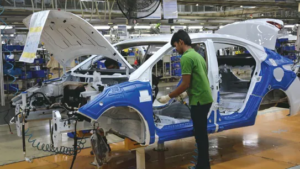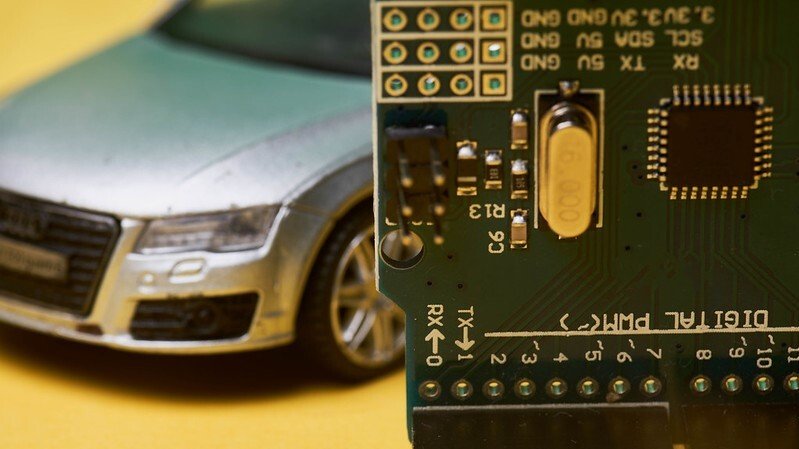Read in : தமிழ்
Just over a year ago, it was hard to tell that the global shortage of semiconductors could do such harm to the global automotive industry, let alone the Indian industry. The effect of the chip shortage persists till date and is expected to continue for some more time.
The lockdowns imposed in various countries around the world had forced chip manufacturers to halt manufacture. During this period, the work-from-home culture took over resulting in microchip rich electronic gadget sales to shoot up. Laptops, gaming devices, smartphones and smart TVs were what the people wanted while shunning the use of automobiles.
As far as the automotive industry is concerned, the ordeal started when the demand for semiconductors decreased after the world was hit by the pandemic. Several car manufacturers worldwide had put a halt to production while expecting the worst.
They, however, didn’t expect the crisis management to be efficient. Though a total eradication of the dreaded virus is a distant thought at the moment, humankind was able to keep a lid on the virus and its variants.
This demand-supply gap caused a backlog in the automotive and electronic device markets. Bridging the demand with supply is still not possible due to the ever-growing demand for semiconductors.
The war between Russia and Ukraine has also contributed to the gap. Both these countries are said to be major suppliers of raw materials that go into the production of these precious chips. Russia supplies Palladium and Ukraine supplies neon gas.
India counts its chips

(Photo Credit: hyundai.com)
Like all the other countries in the world, India has seen the ill effects of the unforeseen chip shortage. The waiting period for cars available in India has shot through the roof. A few Indian manufacturers have stated they need a year to deliver a vehicle that is booked for by the owner.
Maruti Suzuki, India’s largest car manufacturer has seen a major dip in car deliveries. They are sitting on almost 3 lakh booked units, the worst chip shortage in the company’s history.
Condition in the Detroit of India
Chennai-based manufacturers like Citroën, Hyundai, Renault and Nissan are counting chips as well. The number of bookings has increased and so has the waiting period.
Hyundai announced that they have halted production in Russia due to the semiconductor shortage and supply disruption. They even mentioned that this decision has nothing to do with the war between Russia and Ukraine.
The bright side of this is that India will be getting a major share of the semiconductor consignment allocated to Russia. Chennai-based Hyundai and Renault factories are set to benefit from this allocation, thereby giving these manufacturers a much-needed boost to reduce delivery time.
One of the three big German luxury car brands, BMW has been producing cars for India from their Chennai plant. A recent study conducted by the company released results that their elite Indian customers prefer BMW’s high-end luxury cars.
The semiconductor issue has shifted people’s eyes towards the used-car market, according to one BMW official. In Tamil Nadu, owning old vehicles is a pride and certain groups of purists would still consider the good old classics whenever they can acquire them.
Having provided Hyundai, BMW and Renault with adequate support, the Tamil Nadu manufacturing scene could turn out in the state’s favour along with these companies attached to it.
With a part of the semiconductor consignment to Russia being diverted to India, chances are high that Hyundai and Renault will benefit from it, potentially reducing the waiting period substantially.
Read in : தமிழ்











